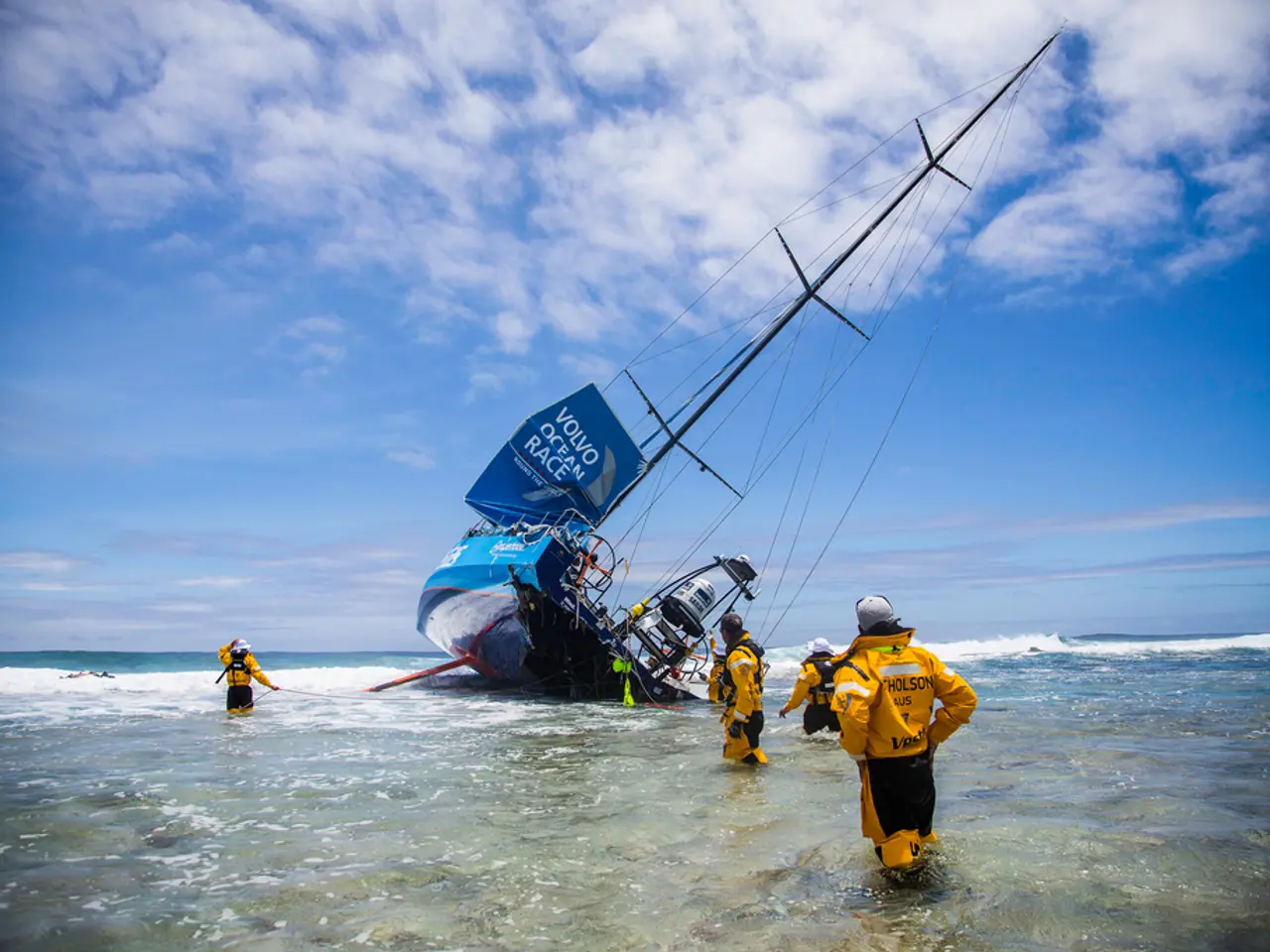Italy to Repair Sea-Watch Aircraft
In the central Mediterranean, a sea of uncertainty looms as Italy enforces stricter regulations on non-governmental organizations (NGOs) engaged in migrant rescue and monitoring activities. The latest development in this ongoing saga is the administrative detention of Sea-Watch's aircraft, "Seabird 1," by the Italian aviation authority ENAC for 20 days, marking a significant precedent in Italy's enforcement of migration-related aviation policies.
The grounding of "Seabird 1" is a direct consequence of new rules introduced by the Flussi Decree, a regulatory framework that has significantly increased regulatory scrutiny on NGO aircraft involved in migration surveillance and rescue at sea. This crackdown reflects Italy's tightened policy on NGO operations in the region.
The Flussi Decree, an expansion upon the Piantedosi Decree issued a year prior, allows for the seizure of civilian rescue ships. This is the first time the decree has been applied to an aircraft, and it could last up to 60 days, with the potential for confiscation on the third occasion, and pilots facing consequences for their licenses.
The situation reached a critical point on July 29th, when a boat in distress, spotted by the "Seabird 2," capsized. German human rights commissioner Lars Castellucci, who witnessed the incident, called for a European search and rescue mission and safe and legal escape and migration routes.
Sadly, the central Mediterranean route remains one of the most dangerous refugee routes worldwide, with at least 953 people having died or gone missing since the beginning of the year. Sea-Watch has documented instances of severe human rights violations by the Italian government, as well as incidents where Libyan militias, equipped by Italy and the EU, have shot at rescuers and fleeing people.
Despite the distressing circumstances, Sea-Watch continues its mission, operating three reconnaissance aircraft in the region. Last year, the organization conducted 151 missions, discovering 221 migrant boats in distress with around 11,000 people on board.
In response to the Flussi Decree, Sea-Watch has put a smaller aircraft, the "Seabird 3," into operation. However, the blocking of the rescue ship "Aurora" in the port of Lampedusa a few days earlier has further complicated the situation.
As the situation unfolds, the international community watches with bated breath, hoping for a swift resolution that prioritizes humanitarian concerns over political agendas. The need for a comprehensive, coordinated, and humane approach to migration issues in the Mediterranean has never been more urgent.
Read also:
- "Thrilled response" from animal rights organization following cessation of canine testing at London, Ontario healthcare facility
- Is it secure for individuals with dementia to consume ice cream?
- Jellyfish invade coastlines, forcing closure of nuclear power plant: jellyfish predicament
- Consequences of India's Diplomatic Disputes with the United States




